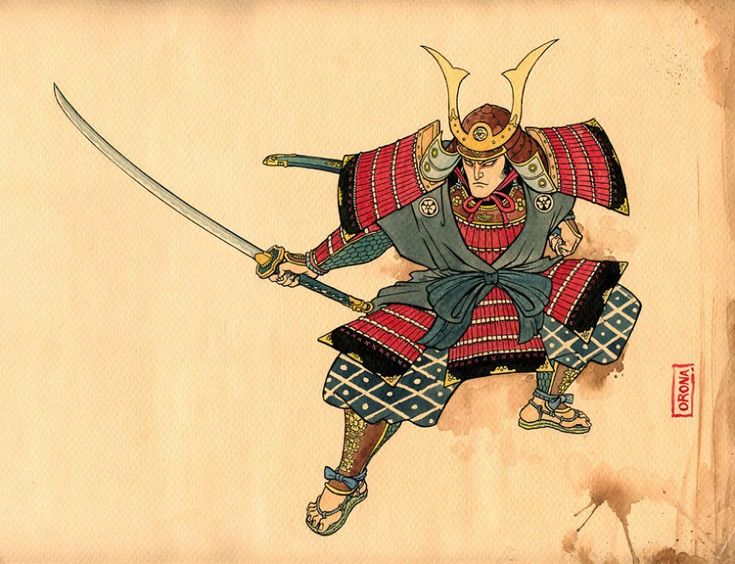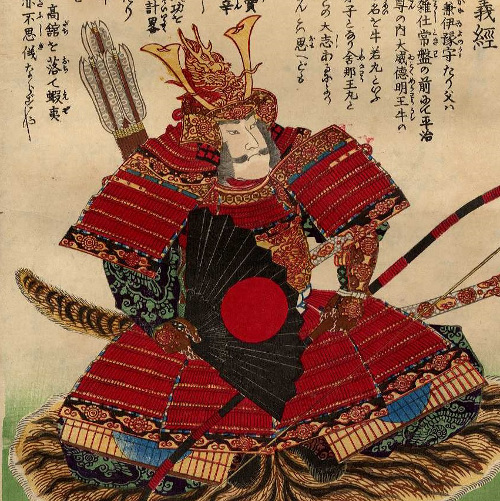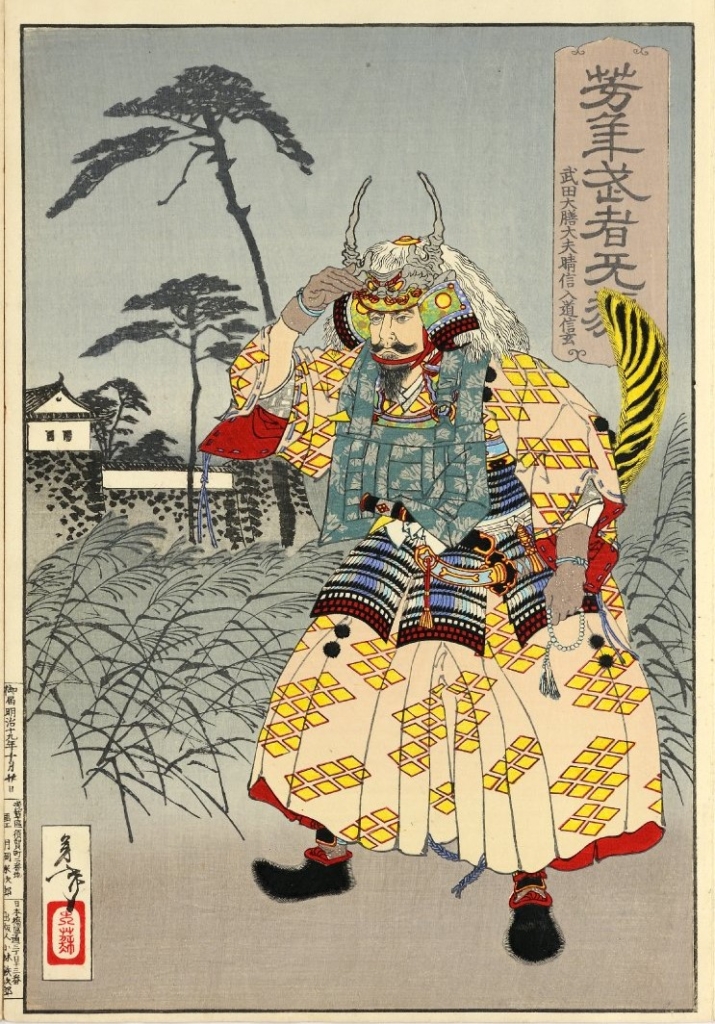
The 5 Greatest Warriors in Japanese History
Samurai FootballFeudal Japan gave birth to legendary figures. Samurai, warrior monks (called "sōhei"), and outstanding strategists, some left their mark on history through their bravery, loyalty, and sense of sacrifice.
Here is a selection of five Japanese warriors whose names have remained etched in our memories, even after centuries.
1. 🐉 Miyamoto Musashi (1584–1645)
Perhaps the most famous samurai of all time , Miyamoto Musashi is known for never having been defeated in a duel. He is said to have won over 60 fights, often one-on-one, by perfecting a unique two-sword style: Niten Ichi-ryū . He fought with a cool strategy, striking at the exact moment his opponent weakened.

More than a samurai, Musashi was also an artist. He left behind a major work, "Gorin no Sho" ("The Book of Five Rings"), a philosophical treatise on the path of combat and the spirit.
Musashi ended his life as a hermit, withdrawing into a cave called Reigandō, pursuing his inner quest. He embodies the balance between martial arts, introspection, and self-improvement. The epitome of the accomplished samurai , an example for generations of warriors to come.
2. ⛰️ Minamoto no Yoshitsune (1159–1189)
Brother of the founder of the first shogunate, Yoshitsune was one of the most brilliant military strategists of the Heian period. Small, frail, and almost effeminate according to accounts, he compensated with extraordinary intelligence . At the decisive Battle of Dan-no-ura, he defeated the powerful Taira and established the Minamoto's dominance.

But his fame was brief. Betrayed by his brother Yoritomo, he was hunted down, exiled, and then forced to commit seppuku in northern Japan. His tragic end made him a romantic and melancholic figure, celebrated in poetry, Noh theater, and popular literature.
Yoshitsune symbolizes the noble hero, rejected by politics and destroyed by the ambition of the powerful. His story continues to inspire generations, from manga to contemporary literature.
3. 🛡️ Musashibō Benkei (1155–1189)
A warrior-monk turned legend, Benkei was a naginata -wielding colossus who is said to have challenged and defeated 999 Taira samurai at Gojo Bridge in Kyoto before losing to a man named Yoshitsune… to whom he swore lifelong loyalty. Together, they formed a legendary duo in the war against the Taira.
.jpg)
Benkei is renowned for his absolute loyalty. During the final assault on his master Yoshitsune at Koromogawa, he stood on the castle bridge and held off dozens of soldiers. He died standing there , riddled with arrows, without ever retreating a step. A myth of loyalty and courage.
His spirit of sacrifice and brute strength has inspired people to this day. The French brand Benkei Studio draws direct inspiration from this, celebrating those who struggle, resist, and move forward with pride.
4. 🧠 Takeda Shingen (1521–1573)
Nicknamed "The Tiger of Kai," Takeda Shingen was one of the greatest warlords of feudal Japan. His army was feared for its discipline, speed, and innovative tactics. He faced Uesugi Kenshin in a series of legendary battles, including at Kawanakajima.

Shingen was also a remarkable political manager. He stabilized his territories, developed agriculture, and strengthened feudal laws. He was respected as much for his authority as for his ability to inspire loyalty .
His emblem, the "Fūrin Kazan" (Wind, Forest, Fire, Mountain), taken from Sun Tzu's "The Art of War," remains a symbol of military strategy and discipline to this day. A true example of a complete war leader.
5. ⚔️ Date Masamune (1567–1636)
With his black armor and crescent moon helmet , Date Masamune is one of the most iconic lords of the Sengoku period. Blind in one eye (earning him the nickname “One-Eyed Dragon”), he was as feared as he was admired for his determination and political vision.

He founded the city of Sendai, developed trade, and even sent diplomatic embassies to Mexico and Rome, a rare feat for the time. His curiosity about the outside world and his open-mindedness made him a strikingly modern man.
Charismatic, elegant, and strategic, Date Masamune represents the ideal of the cultured samurai. His image continues to be used in numerous video games such as Final Fantasy, TV series, and contemporary works of art.
